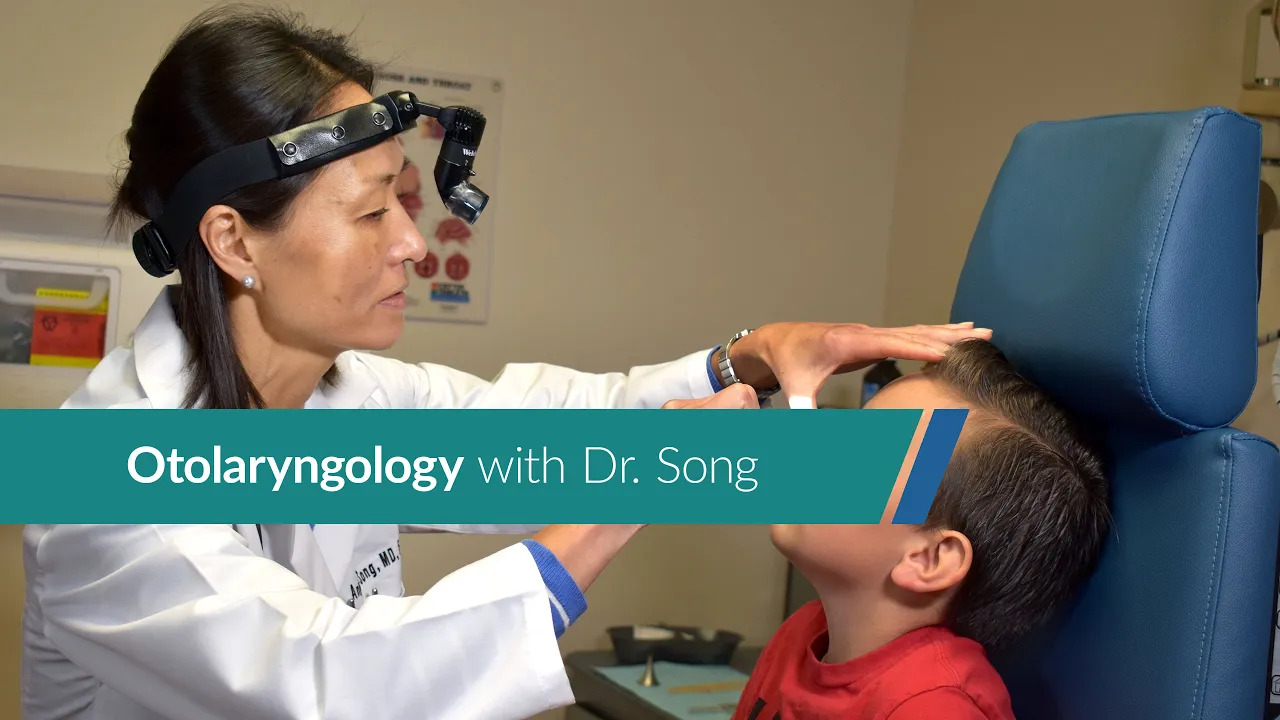ENT Specialist: Who They Are and What They Handle
ENT Specialist: Who They Are and What They Handle
Blog Article
Discovering the Field of Otolaryngology: What to Anticipate When You Seek Advice From an ENT
Otolaryngology, typically described as ENT, encompasses the medical diagnosis and treatment of nose, throat, and ear conditions. For those experiencing relevant problems, getting in touch with an ENT specialist can offer clearness and relief. Recognizing what to expect during such examinations is essential for efficient interaction and treatment. This summary will certainly detail vital aspects of the ENT experience, including common factors for check outs and the processes associated with diagnosis and treatment.

Understanding Otolaryngology: An Introduction
Otolaryngology, often referred to as ENT (Ear, throat, and nose) medication, is a specific branch of medicine that concentrates on the diagnosis and therapy of conditions impacting these crucial areas of the body. This area encompasses a variety of conditions, consisting of those pertaining to hearing, balance, breathing function, and speech. Otolaryngologists are trained to handle both medical and medical treatments, utilizing sophisticated techniques and modern technologies. Their experience extends beyond typical conditions, attending to problems such as allergic reactions, sinus infections, and hearing loss. In addition, they play a crucial role in the management of head and neck cancers cells, offering thorough treatment customized to private client requirements. Generally, otolaryngology stays vital for preserving health and wellness and top quality of life in affected individuals.
Typical Factors to See an ENT Expert
Many people look for the knowledge of an ENT expert for a selection of reasons, showing the varied nature of conditions that impact the ear, nose, and throat. Common concerns consist of persistent sinus problems, which typically leads to consistent nasal blockage and facial pain. Allergies and their linked signs, such as itching and sneezing, also prompt check outs to these specialists (ENT). Hearing loss, whether steady or abrupt, is an additional substantial factor for examination. Additionally, people might seek examination for throat disorders, consisting of consistent hoarseness or swallowing difficulties. Sleep apnea, identified by interrupted breathing throughout rest, is frequently attended to by ENT professionals also. Each of these problems highlights the relevance of specialized care in managing complicated ENT-related health concerns
Preparing for Your ENT Appointment
When planning for an ENT appointment, it is necessary to collect pertinent information and consider any certain issues. People need to compile a comprehensive clinical history, including previous ear, nose, or throat problems, surgeries, and current medications. Documenting symptoms-- such as regularity, severity, and period-- can give important insights for the ENT professional. Additionally, individuals should prepare a list of inquiries they wish to ask, making sure that all worries are addressed throughout the visit. Bringing along any relevant medical records or examination results can additionally aid the ENT in comprehending the person's condition. Finally, clients ought to confirm their visit information, consisting of time, location, and day, to minimize any kind of last-minute confusion. Proper preparation can boost the performance of the assessment and cause better outcomes.
What to Anticipate Throughout the Examination
As the consultation begins, the client can expect to engage in a thorough conversation with the ENT professional about their signs and case history. The professional will certainly ask about the period, frequency, and extent of signs and symptoms such as hearing loss, nasal blockage, or aching throat. In addition, the individual's previous medical problems, drugs, and any type you could try these out of relevant family background will certainly be evaluated, aiding the professional in developing a complete understanding of the person's health like this and wellness. The ENT may also ask about lifestyle aspects, such as direct exposure to toxic irritants or irritants. This open dialogue develops a structure for the assessment, making sure that the patient's problems are dealt with and setting the phase for any kind of required analyses or recommendations for therapy.
Diagnostic Examinations and Procedures in Otolaryngology
A range of analysis examinations and treatments are crucial in otolaryngology to accurately examine and detect conditions influencing the ear, nose, and throat. Usual tests include audiometry, which gauges hearing feature, and tympanometry, evaluating middle ear stress. Nasal endoscopy allows visualization of the nasal passages and sinuses, while laryngoscopy examines the throat and vocal cords. Imaging methods, such as CT scans and MRIs, offer thorough views of head and neck structures. Allergy screening might also be carried out to determine triggers for sinus or respiratory issues. These analysis tools enable ENT professionals to establish a thorough understanding of people' problems, ensuring customized and reliable monitoring plans. Correct medical diagnosis is important for effective therapy outcomes in otolaryngology.
Treatment Choices Supplied by ENT Specialists
ENT experts offer a selection of treatment options tailored to deal with details conditions influencing the throat, nose, and ear. These therapies range from conservative strategies, such as drug and lifestyle alterations, to even more invasive treatments. Allergies might be taken care of with antihistamines or immunotherapy, while chronic sinus problems could need nasal corticosteroids or sinus surgical procedure. For hearing loss, ENT specialists typically recommend listening device or medical interventions like cochlear implants. In instances of throat disorders, alternatives can consist of speech treatment or procedures to remove obstructions. Furthermore, they may supply guidance for handling rest apnea, consisting of using CPAP devices or surgical treatments. On the whole, the objective is to boost patients' lifestyle through personalized treatment and effective treatment techniques.
When to Look For Follow-Up Treatment With an ENT
Acknowledging when to look for follow-up treatment with an ENT specialist is essential for managing recurring signs or complications associated with throat, nose, and ear problems. Patients need to take into consideration arranging a follow-up consultation if signs persist despite first therapy, such as persistent ear pain, nasal blockage, or throat discomfort. Modifications in hearing, balance issues, or uncommon nasal discharge might also warrant additional analysis. Furthermore, if an individual experiences negative effects from prescribed drugs or has actually undertaken an operation, follow-up treatment is important to monitor healing and deal with any type of concerns. Prompt consultations can guarantee efficient monitoring of conditions, avoid potential complications, and provide comfort regarding one's health. Looking for follow-up treatment promotes proactive health management in otolaryngology.
Regularly Asked Questions

What Certifications Should I Try to find in an ENT Specialist?
When looking for an ENT specialist, one should look for board qualification, relevant experience, and strong person reviews. In addition, effective interaction skills and a compassionate technique can substantially improve the general treatment experience.
How Do I Choose the Right ENT for My Demands?
Picking the best ENT professional involves assessing their qualifications, experience, and client testimonials (Otolaryngology). It is vital to ponder their interaction style and method to treatment, ensuring they line up with the person's details wellness requirements and preferences
Exist Any Kind Of Risks Related To ENT Procedures?
The dangers related to ENT procedures may consist of infection, blood loss, anesthesia problems, and potential damages to surrounding structures. People should discuss these threats with their doctor to recognize private worries and warranty notified choices.
How Can I Take Care Of Anxiousness Prior To My ENT Appointment?
To take care of anxiousness prior to a browse around this site visit, people can practice deep breathing workouts, envision favorable outcomes, prepare concerns beforehand, and look for support from buddies or family, fostering a sense of peace of mind and calmness.
What Should I Do if I Experience Adverse Effects From Treatment?
The person should quickly report them to their medical care supplier if side effects from treatment happen. Modifications to therapy or extra interventions might be required to assure safety and security and efficiency in managing their condition - Voice. As the examination begins, the patient can expect to involve in a detailed discussion with the ENT professional regarding their signs and symptoms and clinical history. These diagnostic devices allow ENT professionals to develop a complete understanding of patients' conditions, guaranteeing customized and reliable monitoring plans. ENT specialists offer a range of treatment choices customized to address particular conditions impacting the throat, nose, and ear. When seeking an ENT professional, one should look for board accreditation, appropriate experience, and solid person evaluations. Selecting the right ENT expert entails evaluating their certifications, experience, and client testimonials
Report this page